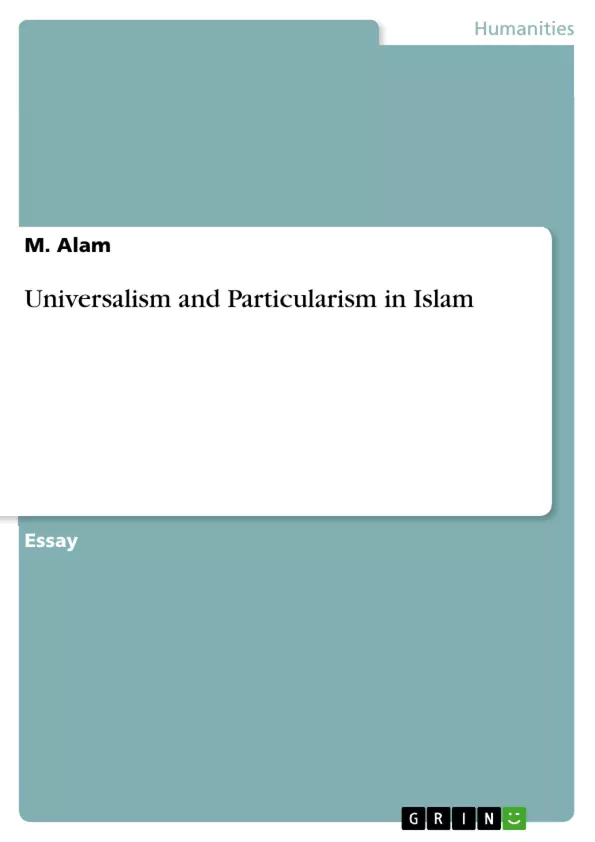I would like to discuss about historical continuity, global changes and symbolic connections.
In the construction of modern Muslim identities there is a striking degree of historical structural continuity. In some cases, contemporary Islamic states and Islamic religious movements are simply the direct continuations of past ones. In the shaping of the modern Islamic world there have been two contradictory trends: the trend toward global integration, which favors universalistic Islam and the trend toward the consolidation of national states, which favors the particularization or localization of Islam.
Inhaltsverzeichnis (Table of Contents)
- Universalism and Particularism in Islam
- Historical Continuity, Global Changes and Symbolic Connections
- Universalistic Tendencies in Islam
- The Absorption of Islamic Movements in National Contexts
- Symbolic Construction of Meaning
Zielsetzung und Themenschwerpunkte (Objectives and Key Themes)
This text explores the complex interplay between universalistic and particularistic tendencies within Islam. It examines how these two forces have shaped the development of modern Muslim identities and the rise of Islamic movements around the world.
- Historical Continuity and Global Changes
- Universalistic Tendencies in Islam
- The Particularization of Islam in National Contexts
- Symbolic Construction of Meaning
- The Interplay of Religion and Nationalism
Zusammenfassung der Kapitel (Chapter Summaries)
The text begins by defining universalism and particularism in the context of Islam, highlighting the Quranic emphasis on God's universal love and concern for all humanity. It then delves into the historical continuity of Islamic movements, arguing that contemporary Islamic states and movements often represent direct continuations of earlier ones.
The text then explores the rise of universalistic tendencies in Islam, tracing their roots back to eighteenth-century reform movements that sought to unify Islamic practice. It examines the rejection of local cultural practices and the increasing standardization of Islamic rituals and beliefs.
The text then shifts to the absorption of Islamic movements within national or particularistic contexts, analyzing the ambiguity inherent in Islam as to whether its fulfillment requires an Islamic state or merely devoted individuals and communities.
The text concludes with an examination of the symbolic construction of meaning within Islam, arguing that symbols connect religious ideas and create a sense of community. It highlights the shared symbolic framework that unites universal and particular expressions of Islam.
Schlüsselwörter (Keywords)
The key concepts and themes explored in this text include: universalism, particularism, Islam, historical continuity, global changes, symbolic meaning, Muslim identity, Islamic movements, globalization, national contexts, religious symbols, and the interplay of religion and nationalism.
- Quote paper
- M. Alam (Author), 2017, Universalism and Particularism in Islam, Munich, GRIN Verlag, https://www.grin.com/document/424513



